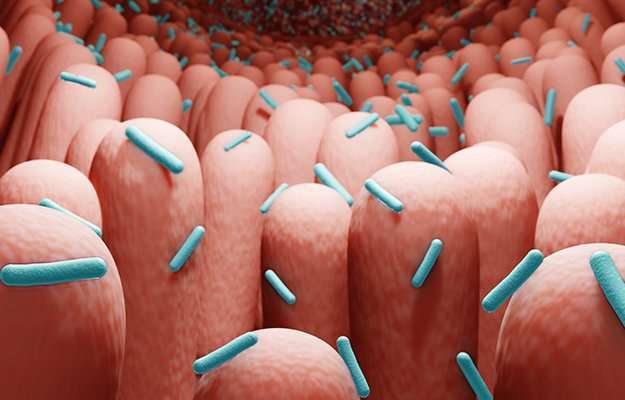There are billions of bacteria, viruses, and fungi living in your body. The microbiome is a term used to describe them all as a whole. It’s true that certain bacteria are connected with illness; but, other bacteria are vital to your immune system and many other elements of your wellbeing. Let’s find out the role of gut microbes in the body.
RELATED: Hormone Pellets: Everything You Need To Know
What is a Gut Microbiome?

In your digestive system, billions of bacteria and their genetic material make up your ‘gut microbiome.’ These microorganisms, which are primarily bacteria, play a vital role in your health and wellbeing by performing vital activities. These bacteria dwell in your digestive tract and play an essential role in digestion, as well as in the absorption and synthesis of nutrients.
Although many different types of microorganisms dwell inside you, bacteria are the most researched. In fact, bacterial cells outnumber human cells in your body. Your body has around 40 trillion bacterial cells but only 30 trillion human cells. That indicates you’re more bacteria than human.
Gut microbiomes are engaged in many other essential activities beyond digestion, including metabolism, body weight, immunological control, and brain functioning and mood. Many variables impact the kind and number of bacteria we host, and while most of us belong to a specific ‘enterotype’ – comparable to having a specific blood type — each person has a unique bacterial imprint.
What Does the Gut Microbiota Do?

For millions of years, we humans have evolved to live with microbes. In fact, without the help of the gut microbiome, we would still be struggling to survive. We were exposed to microbes for the first time when we passed through our mother’s birth canal or even earlier when you’re still inside the womb, according to new evidence.
Your gut microbiome begins to diversify as you grow, indicating that it contains a wide range of bacteria species. Higher microbiome diversity is thought to be beneficial to your health. And they can affect your body in many different ways, which include:
- Helping control brain health: According to a new study, the gut microbiome may potentially have an impact on the central nervous system, which regulates brain function.
- Digesting fiber: Certain bacteria break down fiber, generating short-chain fatty acids beneficial to gut health. Fiber may assist in reducing the risk of obesity, diabetes, heart disease, and cancer.
- Helping control your immune system: The gut microbiome also influences how your immune system functions. The gut microbiome can affect how your body responds to illness by interacting with immune cells.
- Digesting breast milk: Bifidobacteria are bacteria that initially begin to develop within infants’ intestines. They digest the growth-promoting carbohydrates included in breast milk.
- Increase gut health: Probiotics and yogurt contain Bifidobacteria and Lactobacilli, which can help close gaps between intestinal cells and prevent leaky gut syndrome. These species can also keep pathogenic bacteria from adhering to the gut wall.
What Affects Your Gut Microbiome?

Just like its various function and effects, there are also many factors that influence the gut microbiome, including:
- Age
- Psychological stress (anxiety)
- Alcohol and tobacco consumption
- Exposure to pathogens
- Diet
- Medication
- Physical activity
How Can You Improve Your Gut Microbiome?

You can effectively increase your gut microbiome by:
- Eat whole grains: they can give you a lot of beneficial fiber and carbs such as beta-glucan, which can reduce the risk of cancer, weight benefit, prevent diabetes and other disorder.
- Eat fermented foods: foods like kefir, yogurt, and sauerkraut contain healthy bacteria called Lactobacilli, which can reduce the amount of disease-causing species of bacterias in your gut.
- Eat prebiotic foods: prebiotics are a kind of fiber that boosts the growth of healthy bacteria. These foods include bananas, apples, oats, artichokes, and asparagus.
- Eat food with a lot of polyphenols: Polyphenols are plant compounds that are found in green tea, olive oil, dark chocolate, red wine, and whole grains. When digested, they are broken down to enhance the growth of healthy bacteria.
- Breastfeed for at least six months: Mother’s milk is one of the nurturing foods that your children can have to develop their immune system and improve their gut microbiome. According to a study, children who are breastfed for at least six months since birth have more beneficial bacteria than those who are bottle-fed.
- Try probiotic supplements: These are live bacteria that can help return the gut to its normal state after a period of dysbiosis. They do this through the method of reseeding it with healthy microbes.
- Take antibiotics: antibiotics kill not only harmful bacterias in the bug microbiome but also good ones. Keep in mind that abusing antibiotics can lead to antibiotic resistance and weight gain. Furthermore, it should only be taken when medically necessary.
The gut microbiome is highly essential in your health since it helps manage digestion and benefits your immune system, among other things. An imbalance of harmful and good bacteria in the intestines may lead to weight gain, high blood sugar, excessive cholesterol, and other diseases.
You can prevent all of this with a healthy diet and a good exercise routine. Seeking help from medical experts is also a great way to deal with gut microbiome problems.
Get SAFE, EFFECTIVE, and CUTTING-EDGE therapies for health optimization at YM. Contact us to schedule your FREE consultation at our four offices in Florida, Ocala, Fruitland Park, and Daytona. 2020 is DONE. Let’s SLAY 2021!
UP NEXT:

